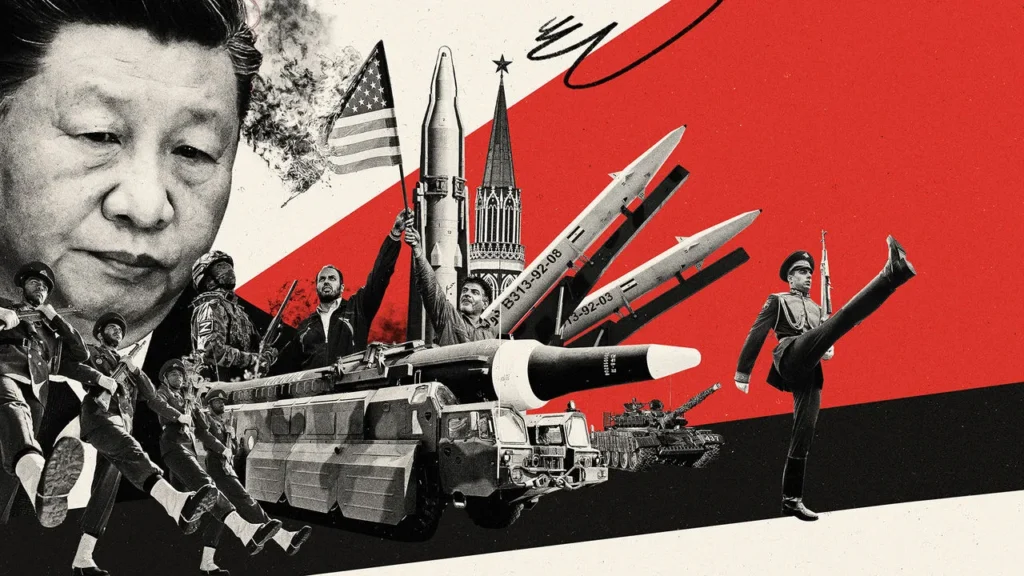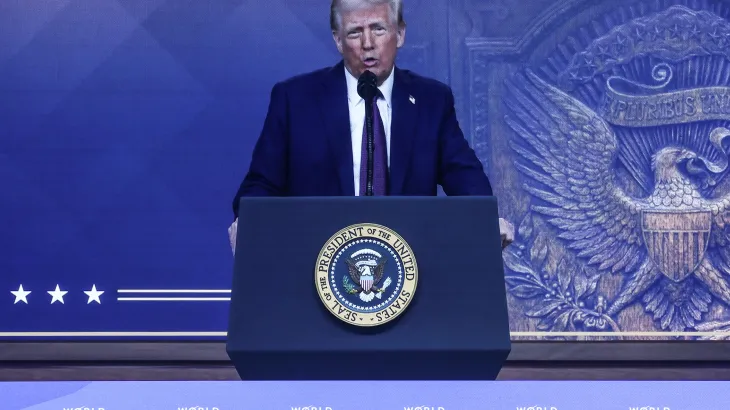By [Your Name]
In recent years, China has made a concerted effort to position itself as a global power broker, challenging U.S. dominance in key regions across the world. From deepening economic ties through the Belt and Road Initiative to brokering diplomatic engagements—such as the Iran-Saudi Arabia rapprochement in 2023—Beijing has sought to increase its influence, especially in the Middle East. However, a hypothetical U.S. military strike on Iran would starkly illustrate the boundaries of China’s geopolitical reach and the enduring dominance of American hard power.

China’s Quiet Rise in the Middle East
China has traditionally maintained a non-interventionist stance in global conflicts, focusing instead on economic leverage and diplomatic engagement. Its growing presence in the Middle East is largely driven by energy security; Iran, a key oil supplier, plays a central role in this equation. In recent years, Beijing has deepened its ties with Tehran, signing a 25-year strategic partnership that includes infrastructure investment and energy cooperation.
Additionally, China’s success in brokering a diplomatic thaw between Iran and Saudi Arabia raised hopes that it might emerge as a credible peacekeeper in a volatile region long influenced by U.S. military presence. This diplomatic feat, while significant, is largely symbolic compared to the practical realities of enforcing peace or deterring war.
American Military Might Still Rules
Despite China’s growing global footprint, the United States still retains unmatched military capabilities, especially in the Middle East. With hundreds of bases, aircraft carriers in the Persian Gulf, and rapid deployment forces, the U.S. can act unilaterally with overwhelming force. If Washington were to decide to launch a strike on Iran—whether to target its nuclear infrastructure, retaliate for proxy attacks, or assert deterrence—it is unlikely that China could do much to stop it beyond issuing diplomatic condemnations.
This scenario would reveal the limits of China’s power: it lacks the military alliances, forward deployments, and credible deterrence mechanisms that have long underpinned American strategy in the region. While Beijing might decry such an attack as destabilizing, its influence would be largely confined to the economic and political sphere.
Strategic Calculations and Global Perception
A U.S. attack on Iran would not only test China’s regional influence but also its global image as a rising superpower. If China is unable to shield its strategic partner from military aggression or prevent escalation through diplomacy, smaller states may reassess the reliability of China’s commitments. It would highlight a stark truth: economic power does not necessarily translate into geopolitical control.
Moreover, China’s deepening ties with both Iran and its rivals—like Saudi Arabia and Israel—may constrain its ability to take decisive sides in a crisis. Unlike the U.S., which often chooses sides in regional conflicts, China prefers to hedge, maintaining relations with all players. While this strategy helps in times of peace, it dilutes its leverage in moments of confrontation.
The Fragility of Multipolarity
The broader implication of such a conflict would be a test of the emerging multipolar world order. Much has been made of the decline of unipolar U.S. dominance and the rise of a more balanced global power structure. But a unilateral U.S. military move in Iran, largely unchecked by other powers, would underscore that the world remains far from multipolar in terms of military influence.
China’s ascent is real, but it is still in the phase of soft power projection. Until it can match the U.S. in terms of military presence, rapid deployment capability, and alliance networks, its ability to prevent or shape military outcomes remains limited.
Conclusion
A U.S. attack on Iran, while highly consequential for global security and regional stability, would also serve as a geopolitical litmus test for China’s rising status. In such a scenario, Beijing’s limitations would be laid bare—not because it lacks ambition, but because it still lacks the tools to match American military reach. In the great-power competition of the 21st century, China’s growing influence is undeniable, but events like this would highlight just how far it still has to go to reshape the global order

















